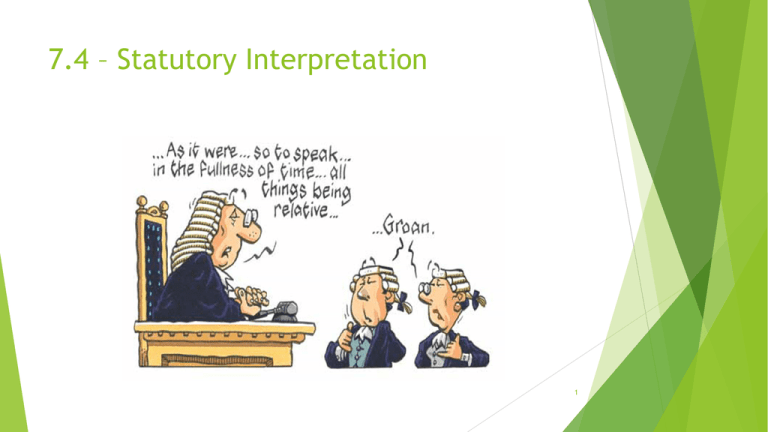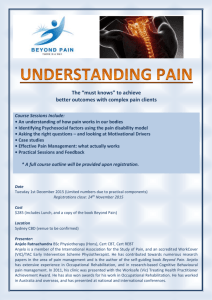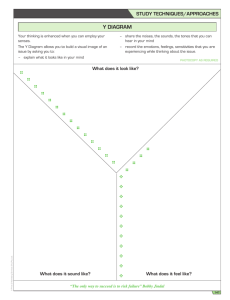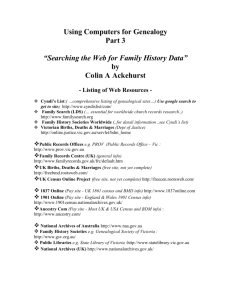
7.4 – Statutory Interpretation
1
Interpretation Activity
Look at the following
section of the crimes act
6231/1958 (Vic).
Write down what this
section means. Rewrite
the section in a way that
is clearer yet still conveys
the same meaning.
Aggravated Burglary
http://www.austlii.edu.au/au/legis/vic/cons
ol_act/ca195882/s77.html
2
Statutory Interpretation
Interpret the following words and give examples
Offensive behaviour
Indecent language
Man
In the vicinity
Weapon
Possession
Architectural design excellence
3
Why do judges need to interpret
legislation?
Legislation may be about a technical or complex topic
Intention of the Legislation is unclear
It may be expressed in general terms to cover wide range of circumstances but has
to be applied to specific situations
May not have foreseen all circumstances
Meaning of words change over time
Technology changes rapidly leaving gaps (upskirting, iwatch)
Those looking for loopholes can find ways around legislation
Amendments over time makes it unclear (Crimes Act 1958)
Time pressures leads to clumsy, vague and ambiguous Acts
Mistakes while drafting – Crimes Act 1958 (Vic)S51 Sexual exploitation of mentally
impaired people requiring a witness to give evidence
4
Examples
Meaning of the words may be ambiguous
Davies v. Waldron (1989) – does “starting the car” mean “attempting to drive”
Grace v. Fraser (1982) – does “driving” include not actually being behind the
wheel?
Mistakes can occur during the drafting of an act – parliamentary counsel
may make mistakes when drafting a bill
S51 of Crimes Act 1958 (Vic.)
Deals with sexual exploitation of people with impaired mental functioning – a
witness was required to support the victim’s evidence before prosecution
It is unlikely that there would be a witness to such acts, so no prosecutions
were brought
Act has since been amended – a witness is no longer required
The meaning of words can change over time – what do “man” and
“woman” mean?
The constitution gives the Commonwealth Parliament power to
legislate over “the naval and military defence of the Commonwealth
and of the several states…” S51 (vi)
This does not refer to any air force, as this was not envisaged at the time of
passing
Acts may not include new types of technology – an act referring to
records, audio tapes and CDs may or may not include DVDs
5
Legislation is unclear or intent is not
clear
6
Methods used by Judges to interpret
statutes
Intrinsic sources (1st port of call)
These are contained within the legislation
Words of the Act
The long title
Preamble (intro section)
Headings
When these are read with the Act they help with making the Act clearer
http://www.legislation.vic.gov.au/
7
Extrinsic sources
Examine other material not found within the Act
Found outside the Act
Hansard
Dictionaries
The Acts Interpretation Act 1901 (Cwlth)
Interpretation of Legislation Act 1948 (Vic) Committee reports
Reports from law reform bodies
8
The effect of statutory interpretation
9
http://www.thevine.com.au/entertainment/tv/top-10-judge-judymoments/
The Effects of Interpretation
Precedent is created
The Act and its interpretation becomes legally binding on lower courts
making judges influential law makers
(Toonen V. Australia [1994]
Words are ‘brought to life’
The actual word does not change but the meaning can. This can restrict or
extend the scope of the legislation
(Deing v. Tarola)
Parliamentary Action
Can abrogate – publicly remove a precedent made through judicial
interpretation (Grace v. Fraser)
Codify – bring together the law in a particular area in one statute
10
Toonen v Australia
11
Deing v Tarola
12
Grace v Fraser
13
Remember….
The judiciary makes laws when interpreting statutes or when expanding
previous precedents
However, when a major change is required the courts may decline to
intervene because they see radical change as the responsibility of parliament
Parliament is able to fully investigate an entire are of law, not just a single
case before the court
Parliament is better equipped to make comprehensive laws especially in
controversial areas
Judges are not elected as law makers and are not responsible to the
community for decisions they make
14
Your Turn
Complete questions 1 – 4
(Page 188)
15






